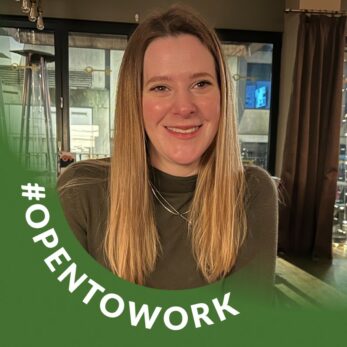Before Google's first tangible updates like Boston in the early 2000s, link-building was like the Wild West, with sneaky tactics aimed at boosting rankings. Fed up with these tricks, Google forced SEO experts to adopt ethical link-building.
Ethical link-building, also known as white hat link-building, involves acquiring links in a fair, non-manipulative manner that aligns with Google’s guidelines and best practices.
Despite black hatters' attempts with PBNs, link farms, and duplicate content, or gray hatters' use of slightly safer but still shady methods, unethical link building is bound to face penalties.
Alternatively, ethical link building — focusing on relevant backlinks and high-quality content, is the only way your website can achieve steady ranking growth, organic search traffic, and robust website authority.
Why is it so reliable? Well, despite its reputation for being slower, ethical link-building practices ensure your website's safety amidst the ever-changing search engine guidelines and algorithm updates. And there are more reasons why:
- Google favors websites that follow good practices, which can boost your rankings just by sticking to the rules. That's why you'll never see top-ranking sites, especially in the link-building niche, without using ethical link-building tactics. While exceptions do exist, particularly in gambling and adult niches where gray and black hat techniques thrive, they only serve to reinforce the rule.
- Ethical link building focuses on enhancing user experience and providing real value, which is why search engine algorithms additionally encourage it.
- Ethical link-building often yields higher-quality backlinks from authoritative and relevant websites, which carry more weight in search engine result pages than multiple poor-quality links.
💡Pro-tip! In our recent survey of 113 SEO experts from around the world, 58.4% rated the influence of links on rankings as high.
Why Ethical Link-Building is Important?
Sticking to ethical link-building is tremendously important simply because Google consistently updates its algorithms each year without fail.
Ethical link building helps create a solid foundation for your website that helps minimize the risks of getting your site hit with a penalty or seeing a massive drop in rankings when search engines like Google make algorithmic changes.
Taking a laid-back approach and ignoring these changes will ultimately land you in lower rankings, even if you were doing okay before. So, adaptation is key!
The link-building community has navigated Google's updates with resilience, adapting to the new millennium days of Cassandra, Florida (2003), and Jagger (2005) to recent ones like the Link Spam and Core updates of 2024. From addressing excessive links to focusing on high-quality content and user experience, link builders have witnessed the evolution firsthand.
So, how exactly did all these updates shape the NOW of link-building? Simply put, they hammered home the message that Google isn't playing around. It's either play by the rules ethically or find yourself out of the game. Therefore, Google imposed ethical-link building on link-builders through:
| Strategy | Result |
| Prioritizing quality links | SEO pros shifted focus from sheer quantity to quality, targeting links from authoritative and relevant sites in their niche or industry. |
| Natural link building | Link-builders aimed at organic link acquisition by creating top-notch content that naturally attracts links from other sites. |
| Relationship building | SEOs fostered relationships with reputable website owners and influencers to organically promote their links over time. |
| Content quality | Link-builders crafted compelling, non-keyword-stuffed content tailored to their audience, exploring sought-after topics across various formats and conducting original studies to earn backlinks naturally. |
We find that sticking to ethical link-building is the best way to succeed. With important clients, there’s no room for black hat tactics. We always suggest a steady and reliable approach, using guest blogging, press releases, and getting our clients mentioned by journalists, reporters, and influencers. It’s better to move slowly but surely.
How Would Black Hatters Act?
Regrettably, no matter how many updates Google might roll out, there are still loads of websites out there chasing rankings and traffic spikes, throwing ethical link-building out the window.
But do they really get away with it? Nope! Eventually, they pay the price. All those unethical practices end up getting them flagged and downranked because you just can't dodge updates forever.
Here’s what to avoid:
PBNs
A vast share of black hatters try to manipulate rankings by creating Private Blog Networks or PBNs. These are clusters of interlinked websites belonging to one “root website” designed to create an impression of an organic connection between “earned” links.
Their sole goal is to lull both search engines and website visitors into thinking they're dealing with genuine, relevant website linking.
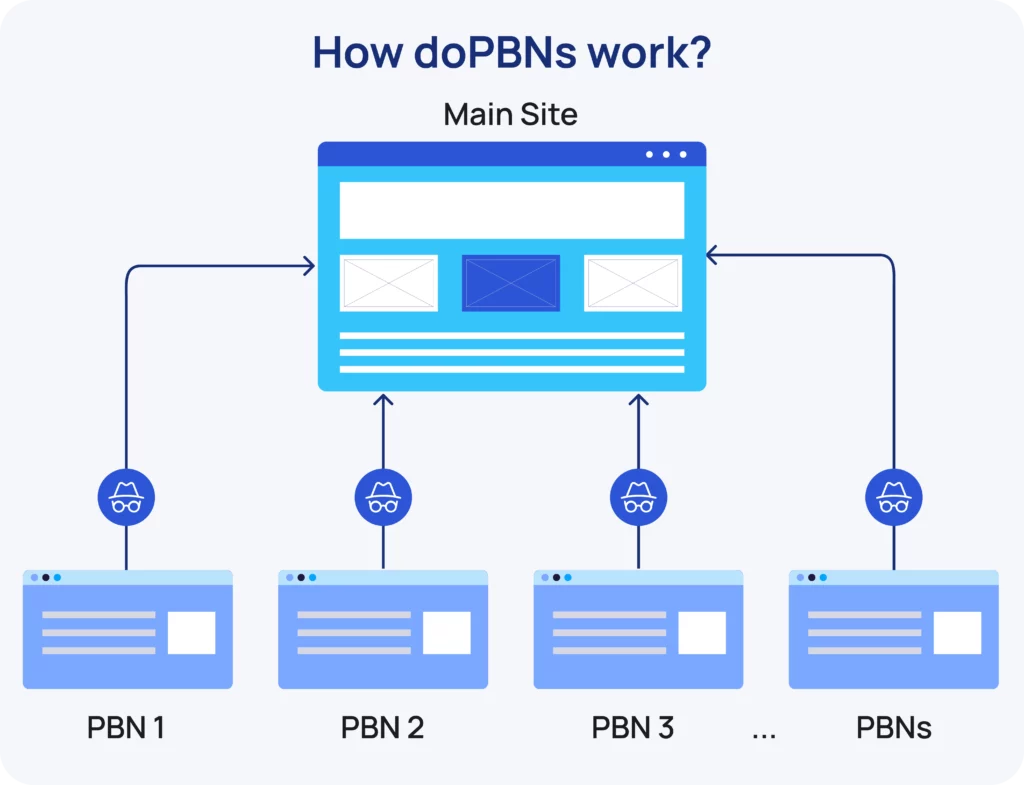
🔎 How to spot?
You can often spot a fishy domain connected to a PBN or lousy backlinks by observing some telltale signs: high DA/DR, low traffic, only a handful of top-ranking keywords, and hardly any page visits.
More cues include:
Grab your handy checklist!
✅ Lots of sites with matching designs
✅ Not-so-great content
✅ Zero-relevance links & content
✅ Strange link patterns
✅ Absent Whois details
✅ Traffic going up and down unexpectedly
✅ Not much action on social media
✅ Poor user experience
Lastly, many PBN-like sites often share IP addresses since blackhatters typically don't host each domain separately. To detect this, we'll perform a Batch Analysis of the linked domains in Ahrefs.
For our experiment, we'll use URLs from several directories that promise "great results" but seem a bit suspicious. Take a look!
- globaldir.org
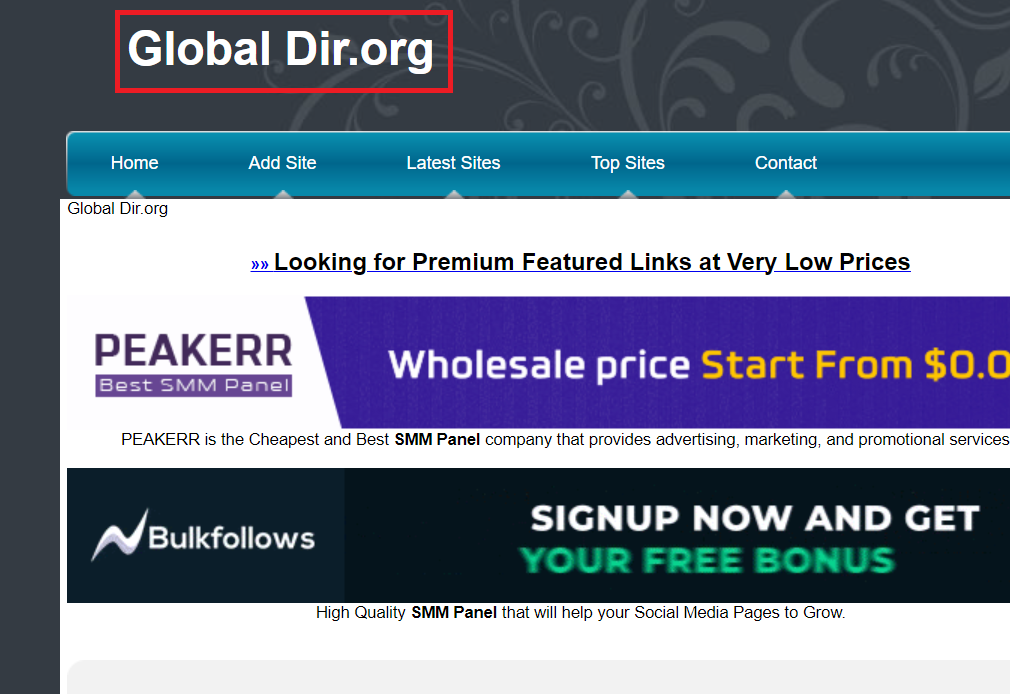
- nicedir.net
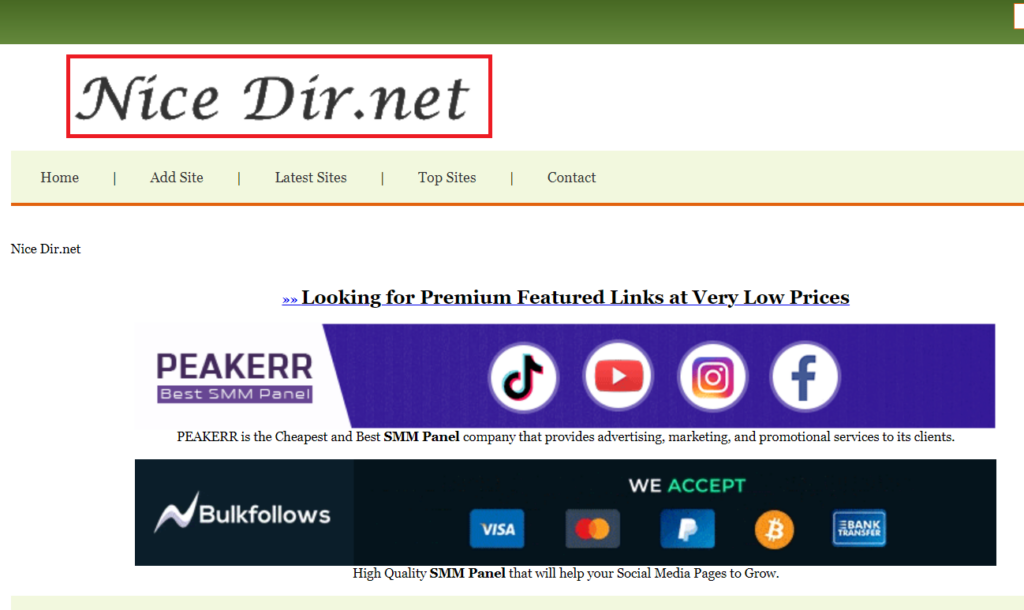
- smartdir.org
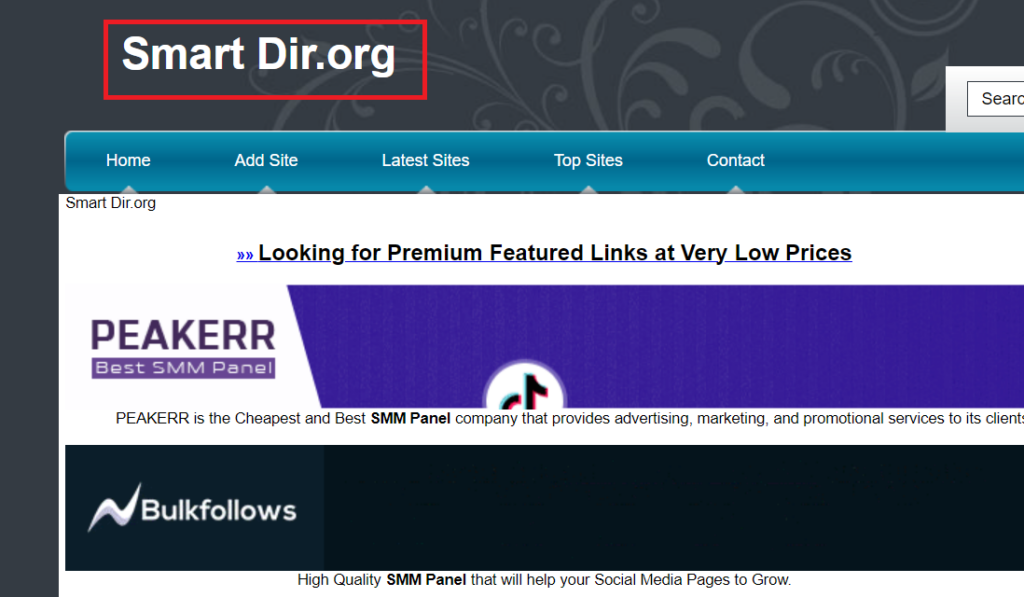
Not only do they look alike in design, but checking their IP addresses shows they’re basically the same thing — probably a part of a single PBN due to shared hosting.
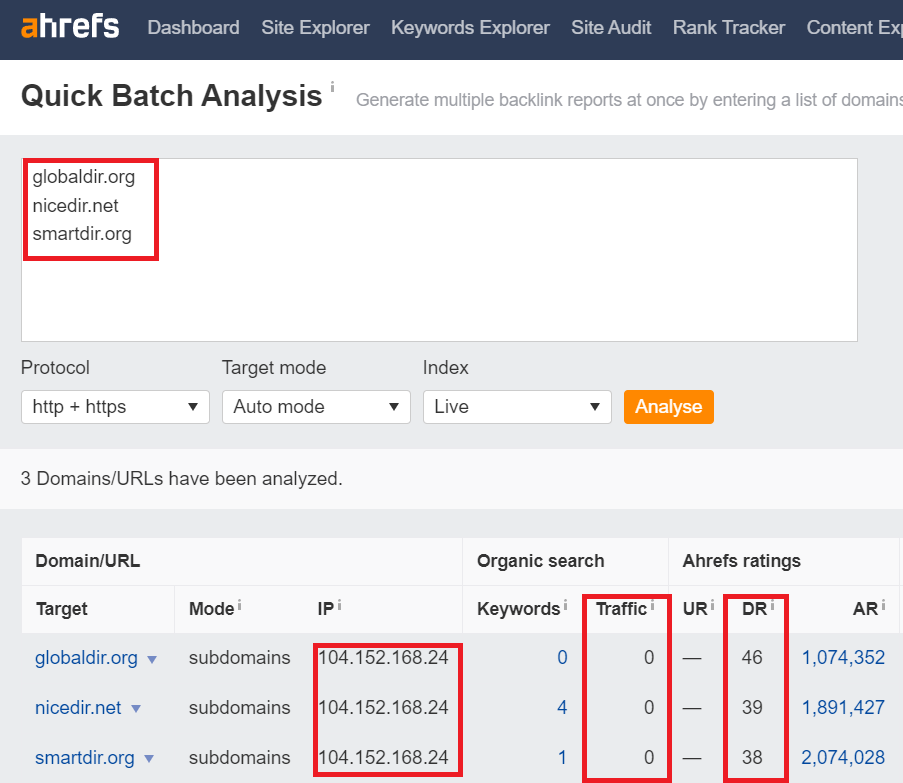
Look at the zero traffic and high DRs! Guess, there’s no need to dig further, all the signs are quite telling.
But heads up, there are more shady link-building tactics coming our way!
Buying backlinks
Why would buying backlinks be considered unethical? After all, isn't it something everyone dabbles in occasionally? Well, our survey revealed that it's actually pretty common. A fair share of SEO experts we asked (92%) believe that their competitors purchase links.
Technically, buying links DOES give blackhat vibes since Google labels "buying or selling links for ranking purposes" a link scheme. And that’s inherently penalty-provoking.

But are penalties for buying links that common? Yes and no. If you get busted, you might pay with a drop in rankings or, in the best-case scenario, see no result from bought links whatsoever. Sounds like wasting your valuable resources, as paid links are generally expensive.
On the bright side, when done right, paid links are pretty hard to detect, especially if you get them from ethical link-building services or reputable websites with high rankings, significant DRs, and high-quality content relevant to your niche.
For instance, editorial links or niche edits could be your best bet when it comes to paid link building. They are easily manageable, effective, and safe for your rankings since they are strategically placed in the existing, relevant content of established and authoritative websites.
Sure, it might take a bit of time to hash things out with website owners, editors, or content teams. But it's one of the most organic ways to snag top-notch links without throwing cash at those that turn out to be duds.
⚠️Attention! Despite the saying that the best things in life come for free, that's not quite the case with niche edits. On average, these could set you back anywhere from $200 to a pricey $1000 per link, especially if you're targeting the most credible and high-ranking sources.
Alternatively, you may turn to Editorial.Link for a little assistance.
We're a 100% ethical link-building service, focused on securing top-notch links through our long-lasting partnerships with authoritative websites like podium.com, monday.com, envato.com, and lots more! All at a reasonable price. Just give us a holler!
🔎 How to spot fraud when buying links?
- Extremely cheap offers: unrealistic results at unbelievably low prices are a major red flag. Quality links demand time and effort, so steer clear of deals that seem too good to be true
💡 Pro-tip! Ever checked out Fiverr and similar platforms? It's a hub for freelancers ready to tackle tasks for a small fee.
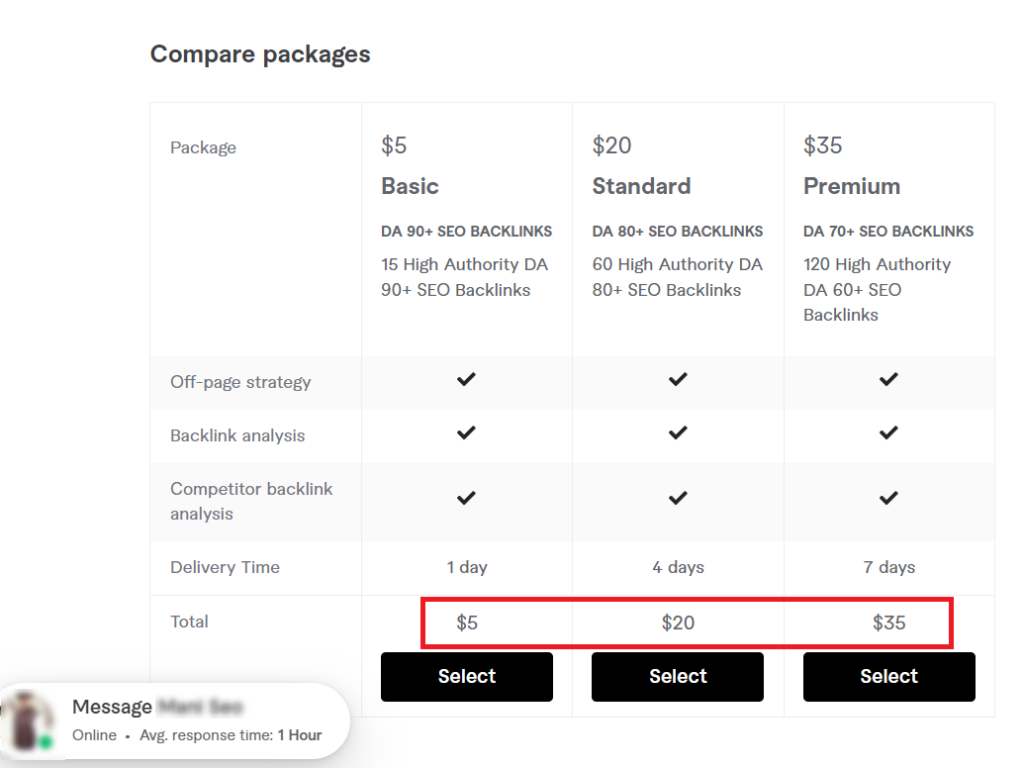
But beware: it's also a hotspot for black hat link-builders peddling worthless links. Stay sharp and entrust your rankings to ethical link-building services ONLY.
- Zero info from the seller: trustworthy link sellers are clear about their strategies and where your links will go. If a seller is vague or avoids sharing details, be cautious.
- Dramatic fluctuations in backlinks: watch out for sudden surges and drops in backlinks, especially if you haven't been actively building them. It might signal unethical tactics like link farms or spamming, which might cause penalties.
- No-follow links only: while both types of links should be present in a natural backlink profile if you are offered solely no-follow links, pause. These CAN drive referral traffic, but they won't pass PageRank and your rankings will remain the same.
💡Pro-tip! You might also bump into offers of “quality linking” from forum platforms like Reddit, Quora, or else. This is the case when such Web 2.0 links do bring traffic but DON’T carry any weight.
- Prior penalties: before purchasing links, inspect the site’s status with tools like Google Search Console. If it has a history of penalties, it's best to steer clear.
- Link placement: carefully assess the websites your link will be mentioned. If they have poor content, spammy backlinks, or are unrelated to your niche, they could harm your rankings and offer little SEO benefit.
- Matching anchors: in natural link profiles, you'll find a mix of anchor text: branded terms, plain URLs, and relevant keywords. If a seller pushes exact match anchor text for all links, it might signal unethical link-building.
- Similar IP addresses: if a cluster of chosen websites for link placement share the same IP with a dodgy website, you know what to do: run!
Non-relevant backlinks
Non-relevant backlinks are just another byproduct of unethical link-building. These come in all shapes and sizes, from classical spam, hidden, low-rate directories links to unrelated links designed purely to trick Google's ranking system.
Links from link farms, PBNs, shady reciprocal link schemes, and those purchased from questionable link-building services also fit into this category.
🔎 How to spot?
- Check for content relevance: take a peek at the content near the backlink. If it's off-topic or unrelated to your website's focus, chances are it's an irrelevant backlink.
- Analyze anchors: mismatched anchor text could signal irrelevance. For instance, the anchor of this link promises to redirect users to “fire retardant clothing” content.

In reality, it leads to a low-rate SEO blog. What a blooper!
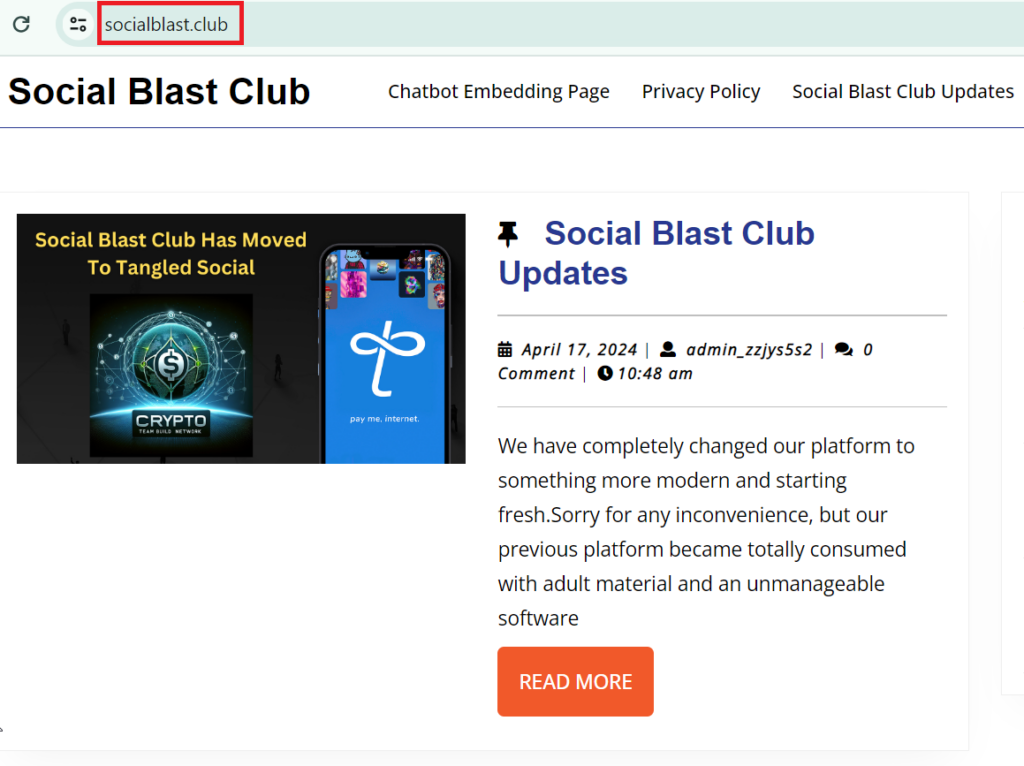
- Monitor DA: if the domain has low authority or is known for spammy content, the backlink is likely irrelevant.
Imagine you run a car maintenance workshop in Dubai and want to spread the word about your services. While browsing online, you find a top-rated luxury car rental website in Dubai. You think it would be awesome to have a link to your workshop on their site.

However, after checking their domain authority, you might feel less enthusiastic about the idea.
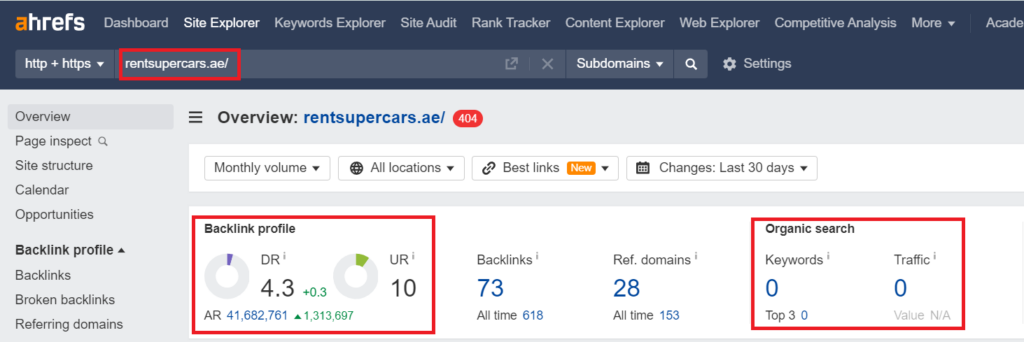
- Consider the context: if you clicked on a link to learn more about something, but it's completely unrelated to the article you're reading, then it's definitely not relevant. Moreover, Google penalizes such unethical moves as "sneaky redirects”.

For instance, let's say you're reading an article and encounter a term you're unfamiliar with, like "Google business profile optimization."
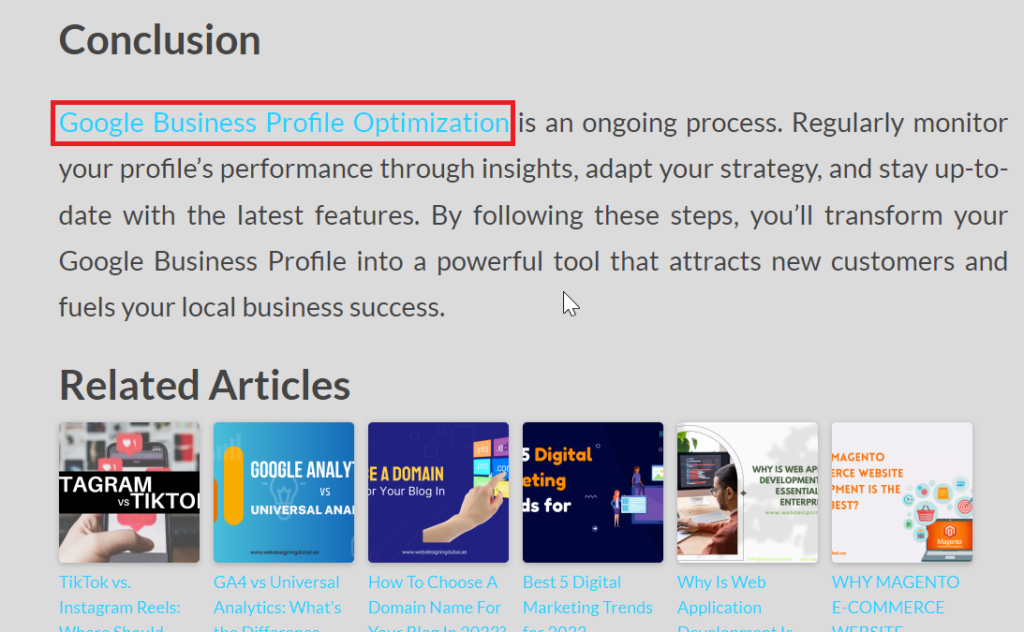
Upon clicking the link to find out more, you're redirected to a digital marketing agency page that lists its services. However, there's no mention of the topic you were curious about, such as Google business profile optimization. Irrelevant? Totally!
- Assess content quality: if the link's content appears relevant but is either vague or overloaded with keywords, it's likely low quality, designed mainly to artificially boost rankings.
Check out this article! The keyword stuffing is just ridiculous!
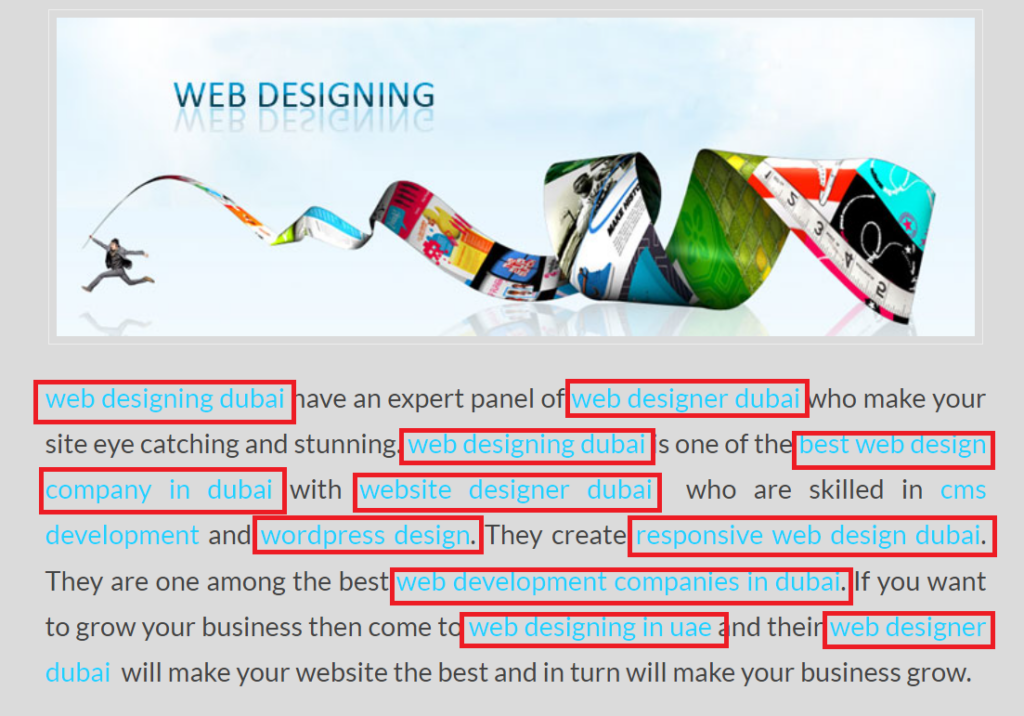
- Track manually: regularly review your backlink profile manually. Watch out for patterns or trends suggesting irrelevant sources.
- Automate: leverage automated backlink analysis tools like Ahrefs, SEMrush, or Moz to pinpoint and weed out irrelevant links from your backlink profile in less time.
Let me be honest with you. If you’re running a site that you don’t care about long-term or simply are only interested in short-term results (for example, an affiliate marketing site), then you may find it worthwhile to resort to gray hat or black hat techniques for quick results. Just realize that the more black hat the technique, the more you jeopardize your site’s long-term viability, particularly in organic rankings and traffic.
Ethical Link-Building Strategies
Now that you've figured out what to avoid, let's explore some reliable, ethical link-building strategies to keep your website safe and boost its authority.
| Ethical Link-Building Strategies | How it works? |
| Relationship-based link-building | Focuses on building links through genuine relationships with other websites, often through outreach and collaboration. |
| Creating linkable assets/link-bait content | Involves producing high-quality content or resources that naturally attract links from other websites due to their value or usefulness. |
| Connectively (formerly HARO) | Leverages digital public relations strategies and platforms like Connectivity to earn high-quality backlinks by providing expert insights or commentary to journalists and bloggers. |
| Guest Blogging | Involves writing articles or blog posts for other websites within your niche, typically with a link back to your own site, to expand your online presence and gain relevant backlinks. |
Relationship-based link building
Relationship-based link-building is way far from engaging in excessive reciprocal linking, which falls under black hat tactics
It focuses on establishing authentic connections with authoritative websites that genuinely WANT to showcase your links because of your valuable content and impeccable reputation. Actually, it’s a win-win for both parties.
Website owners enhance their backlink profiles. And we all know that pages with the highest number of total backlinks frequently attain top ranks. While you can boost your domain authority and search position simply because you link to a top-ranking website. Google loves it!
Let's take a cue from the pros and examine the backlink profile of Backlinko.
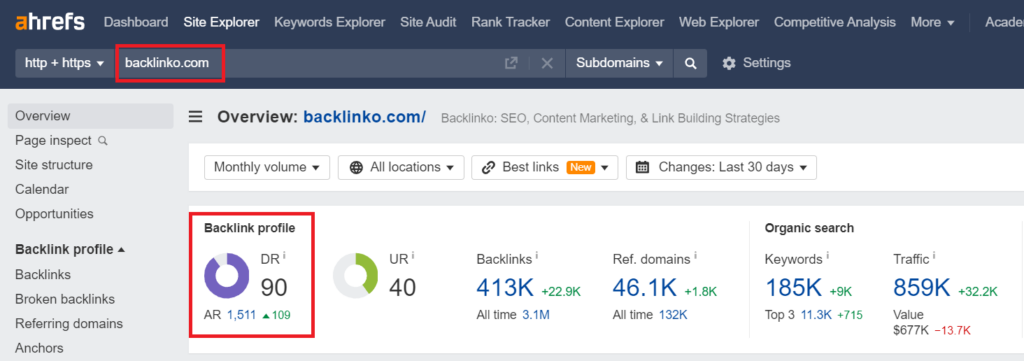
Impressive! Backlinko is undoubtedly a highly authoritative website within the global SEO community.
Now, let's dive into its link intersect to understand that getting such impressive backlinks wasn't easy through mass outreach methods, not to mention unethical ones. We’d use another titan such as Neilpatel as a competitor.
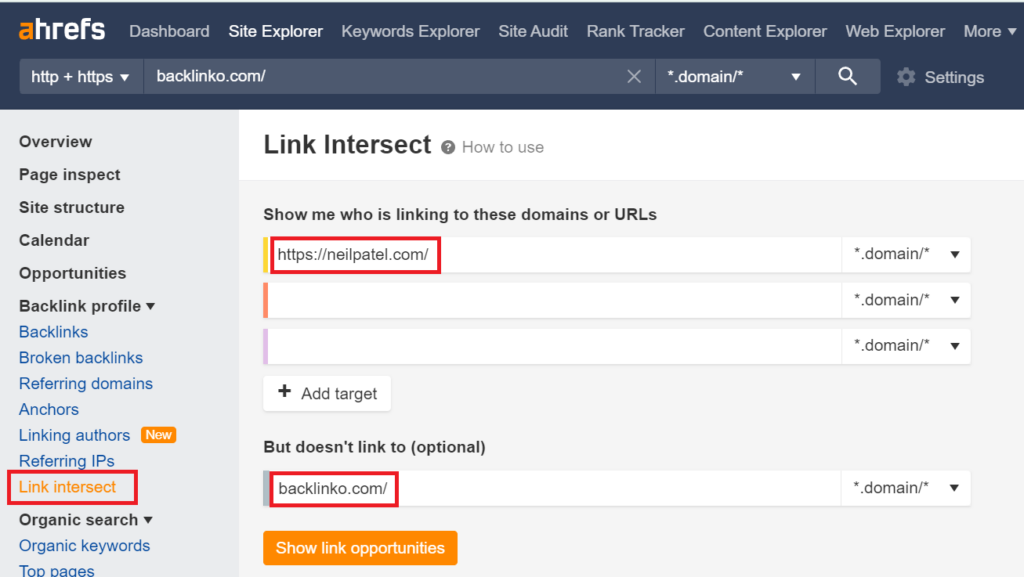
Based on the given data, the system quickly generates a list of websites that link to each other, so you can analyze them yourself.
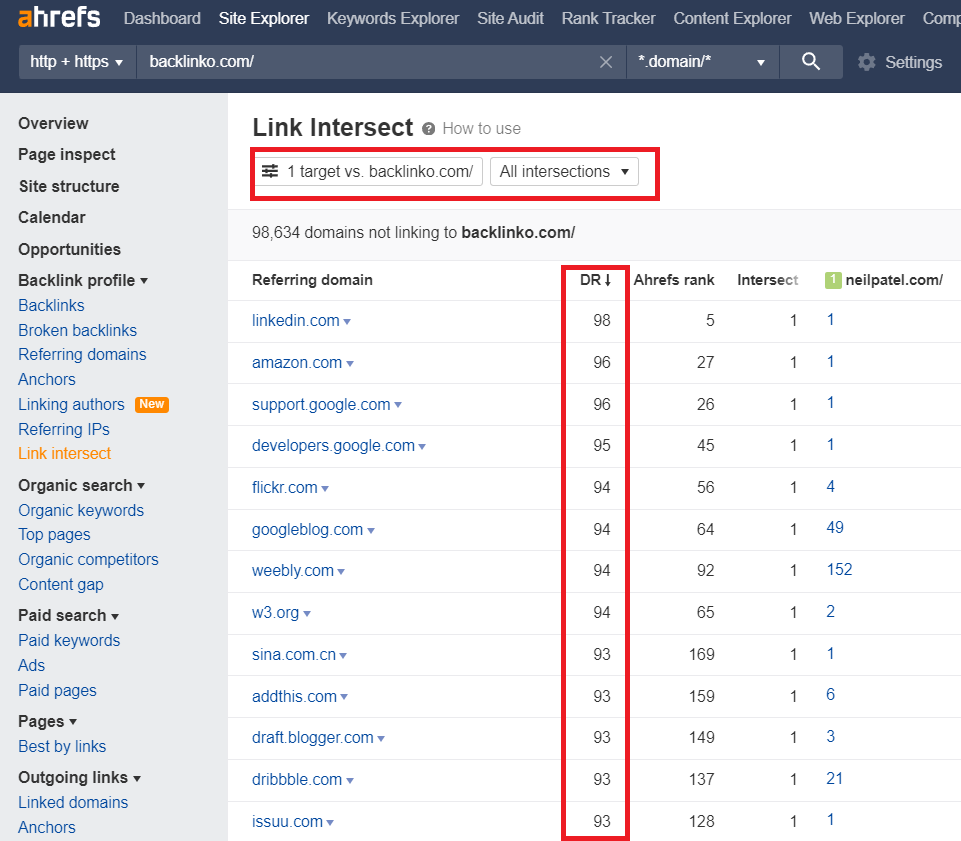
💡Pro-tip! Taking a peek at your competitors' interlinking can do wonders for you. It gives you valuable insights into high-traffic and reputable websites you might want to link to yourself. Once you've identified high-DR websites, you can check their traffic using the Ahrefs Batch Analysis Tool.
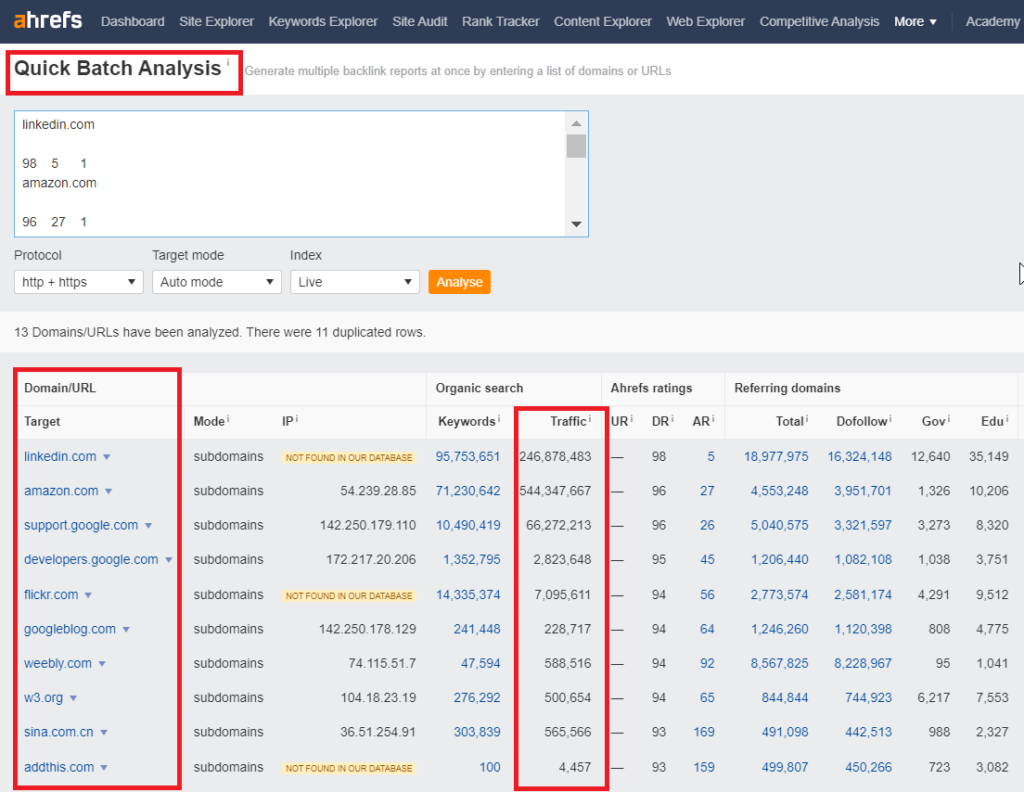
To understand what it takes to get ahead, start with an audit of your competitor’s backlink profiles. When building links, focus on high quality and relevancy — the domain, the topic of the linking page, and your content should all be relevant to your business to get the best results.
This is where your relationship-based link-building journey begins. Choose the most relevant and high-traffic websites from your list, then reach out to their decision-makers. Be friendly and best of luck! Who knows, they might reward you with a valuable link!
Wanna learn the art of relationship-based link-building from the best?
Reach out to Editorial.Link. We've put in the effort to build genuine relationships with top-notch websites with most of the niches and expert areas, so our friends can be YOUR friends too. Contact us and link to the best sources only.
Creating linkable assets
Here's another fantastic example of an ethical link-building tactic that revolves around visually appealing, entertaining, or highly sought-after content.
Often referred to as link-bait content, these materials, such as captivating images, stunning graphics, relevant infographics, unique studies, and eye-catching videos, have the power to grab attention and encourage sharing.
Focusing on creating and repurposing high-quality content, building your social networks, and forming genuine relationships helps with sharing that content. These efforts collectively help to increase backlink acquisition in an organic manner.
🧐 Why it works?
Securing links, say, for a typical blog article can be time-consuming, considering the extensive outreach needed for a single piece of content. Rather than solely focusing on outreach, complement your efforts with creating linkable assets. Just because website visitors will be naturally attracted to the uniqueness of your content, they will flock to your website without much work from your side. And more traffic is a bonus!
Take HubSpot, for instance. They're well-known for their FREE detailed reports on various topics, packed with fresh stats that professionals look forward to each year. Their annual benchmark reports are a great example of linkable assets that get excellent results.
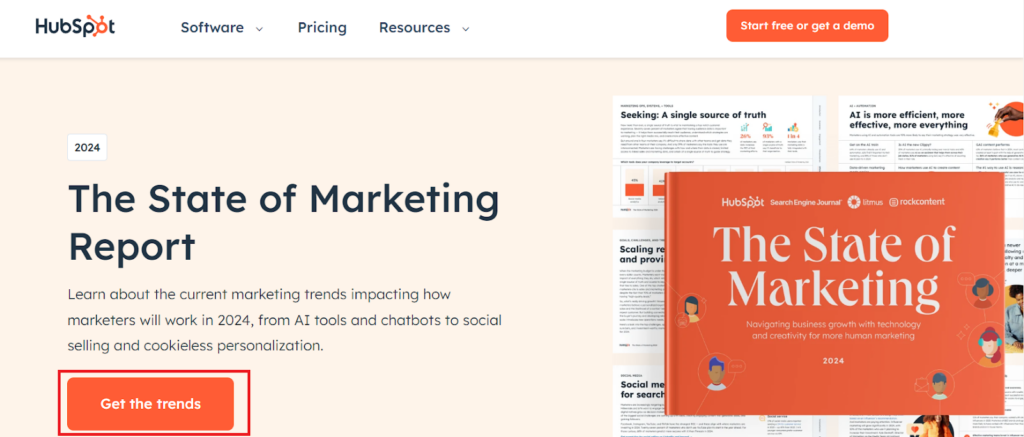
Now, let's see how many backlinks this linkable asset has generated.

Jaw-dropping results!
💡Pro-tip! Wondering how to make your content more link-bait? Make sure it follows Google’s very own E-E-A-T principle.
- Expertise: demonstrate your proficiency in specific topics through your materials.
- Experience: showcase hands-on experience in certain areas through research, analysis, and case studies.
- Authority: establish yourself as a thought leader through feedback, credentials, and testimonials.
- Trustworthiness: back up your image by accentuating your impeccable reputation, transparency, and positive social impact.
Valuable stats
A good stats compilation is a hot trend among website users! Many will go to Google images search simply to source stats images that will eventually make them click on your post and stay for more.
💡Pro-tip! The fresher your stats compilation, the more clicks you'll attract. People prefer not to sift through studies and graphs but will appreciate your effort in compiling all the necessary data into a single stats or graph.
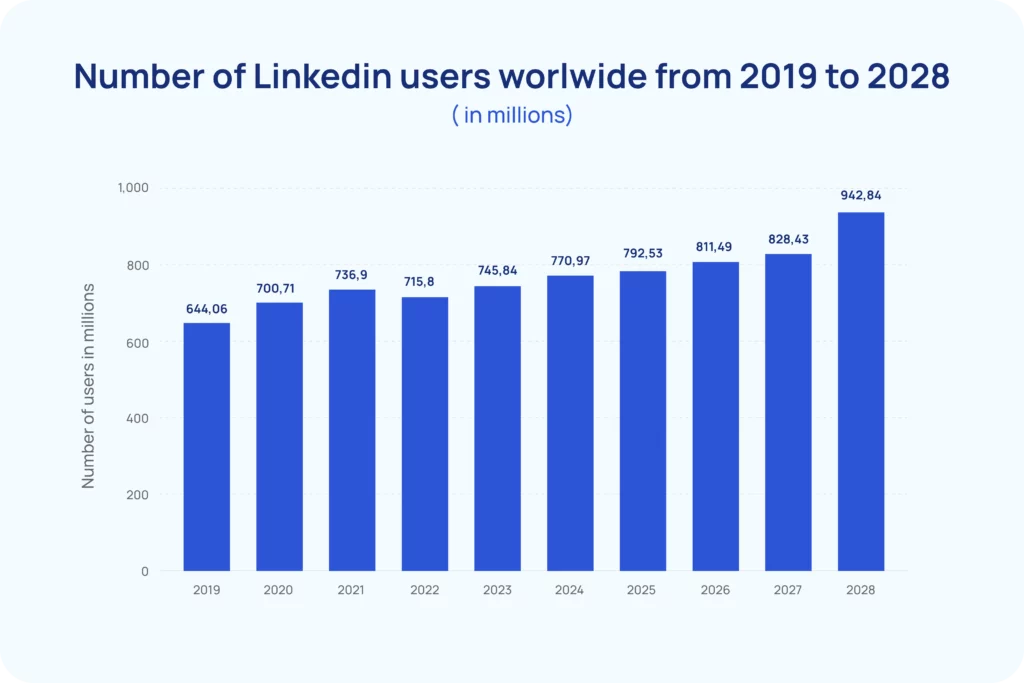
And check out the UR of this graph! Quite remarkable, isn't it?
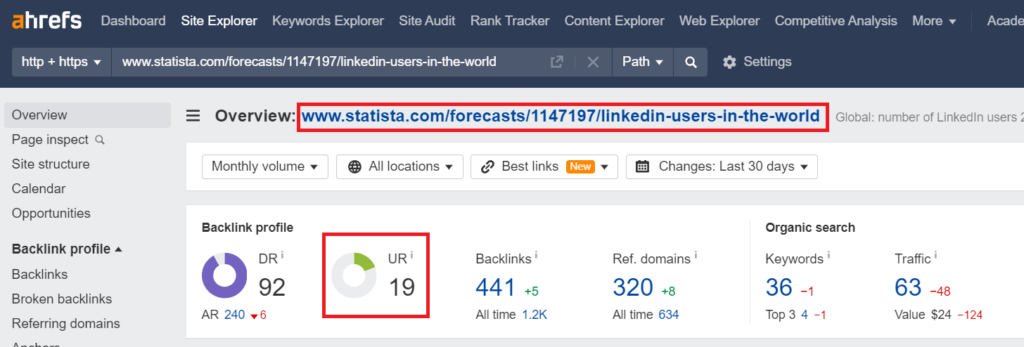
Engaging video content
With shorter attention spans, we all tend to prefer consuming information quickly, mostly through videos. Entire generations have grown up on YouTube and TikTok, leading to speculation that these platforms are becoming the new search engines of today.
In 2023, TikTok dominated daily usage with 53.8 minutes per day, while YouTube followed closely with 48.7 minutes daily among U.S. adults.
🧐 Why it works?
Posts linked to videos have an edge over static content — they grab attention, make points quickly, and entertain. So, make sure to add a video to your list of favorite linkable assets. Here are several types of videos trending in 2024 for the best link-building results.
- Explainer videos: showcase products, and services, or explain concepts in an engaging and easy-to-understand way. In a study from 2020, 84% of consumers reported that an explainer video persuaded them to purchase a product or service.
- Influencer videos: influencers' videos reviewing products or brands can draw attention and engagement from their followers, potentially leading to other websites and blogs linking to the influencer's content.
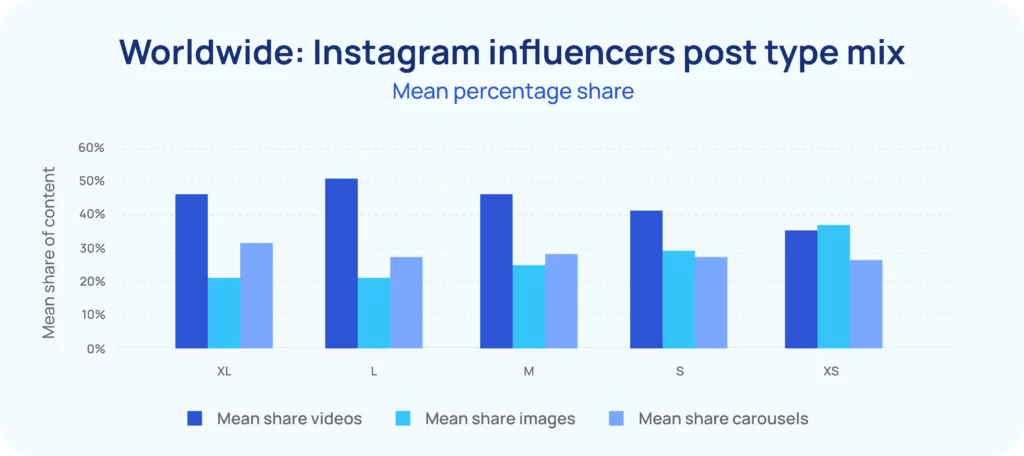
- UGC (user-generated content): helps to create content velocity and authentically build communities that might eventually engage with the content UGC links to.
Connectively (formerly HARO)
Connectively, similarly to analogical platforms like Featured, Help A B2B Writer, or Prowly, is a well-established method of ethical link-building. Although it isn't focused solely on SEO and works better for finance, business, and tech niches, it can still be effectively used for safe link building.
Just pose a question, and experts on the platform will reach out with answers. If you find an expert whose response is relevant to your content, you can easily exchange links and mentions.
However, in 2024, with the widespread use of Chat GPT and other content-generating AI, finding genuine, human-written answers is becoming harder. Many are simply hunting for reciprocal links without building meaningful relationships.
Plus, many overlook Connectively due to the overwhelming speed of responses: you're literally bombarded with emails and have to dig deep to find your perfect expert comment.
💡 Pro-tip! The best approach to combining link acquisition and relationship building is to start communication with a chosen expert on Connectively and then continue the conversation on LinkedIn.
There, you can get to know each other better, explore each other's posts, engage in discussions in the comments, and share valuable insights on similar topics. Once you've built a strong bond, you can begin discussing collaboration opportunities and potential link placements.
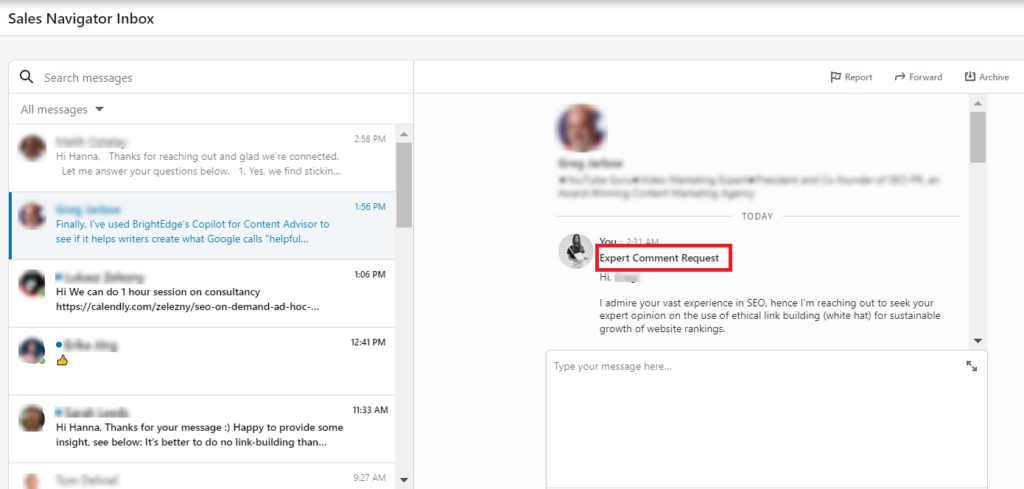
Later, when your content is released, you can mention each other in a post on LinkedIn, helping to spread engagement both on social media and on linked websites.
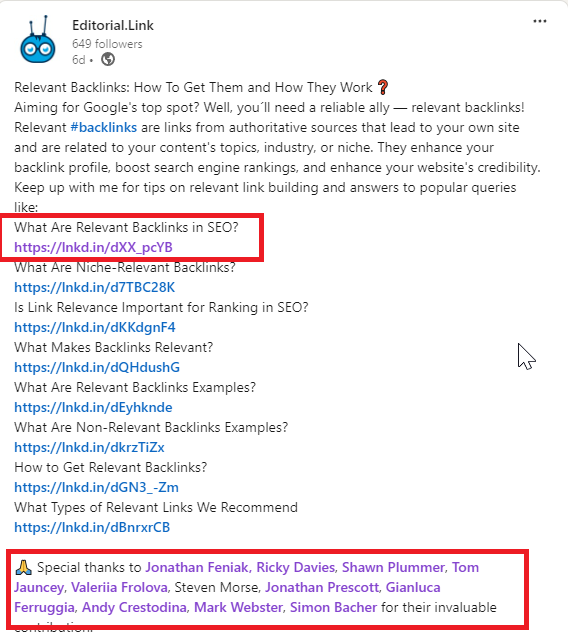
Another cool idea from SEO experts like Greg Jarboe is to blend in some digital PR techniques for better link-building. By leveraging automated PR tools, you can simplify the task of pinpointing the perfect connections, making your outreach efforts more streamlined and powerful.
The tools I and my fellow link-building colleagues rely on nowadays resemble those used in public relations more than traditional link-building tools. They assist me in pinpointing the audience interested in a specific keyword or website and then identifying the news platforms, influential social media channels, YouTube accounts, and podcasts frequented by this audience for relevant content.
This helps me create a targeted “A list” to pitch breaking news to. Consequently, I not only secure links but also generate leads, as these links are more likely to attract engaged visitors rather than mere traffic that quickly bounces away after learning more about my product or service.
Guest posting
Guest posting is one of the most reliable and ethical link-building methods, proven over the years. The concept is simple: submit articles to websites within your industry or niche as a guest writer.
Guest posting is a fantastic way to grow your website. It drives organic traffic, boosts your site’s credibility with valuable backlinks, and helps you reach a wider audience. Plus, it opens up great networking opportunities with industry influencers. 100% recommended!
Earlier, we discussed finding excellent platforms for potential guest posts. To ensure your post has the greatest impact, seek websites with solid domain authority, an active audience, and relevant content. Tools like Ahrefs can be incredibly helpful in this regard.
As for guest posting formats you may employ, consider the following:
- Educational posts often reference relevant studies, data, or resources to support their content. By linking to authoritative sources, guest authors can easily integrate backlinks to their own websites or content within the post.
- Listicles: list-style posts typically include outbound links to various sources, tools, or examples mentioned within the list. Guest authors can leverage this format to mention their own products or services in a list of recommendations.
- Opinion posts: guest authors can use opinion pieces to reference their own research, case studies, or articles published on their website.
- Case studies: when sharing real-life examples or case studies, guest authors can link back to their own website or blog to provide additional context, data, or insights related to the case study being discussed. This helps establish credibility and authority while also driving traffic to their own content.
- Interview posts: interviews with industry experts or influencers often include links to their own websites, social media profiles, or published works. Guest authors can leverage these opportunities to gain backlinks by participating in interviews or contributing expert insights to Q&A sessions hosted on other websites.
- Roundup posts: expert roundup posts typically include links to the contributors' websites or social media profiles. By participating in roundup posts on other websites, guest authors can gain backlinks to their own content while also building relationships with other experts in their field.
- Product reviews: guest authors can write product reviews or guides that include links to the products or services being reviewed as well as related resources or additional information available on their own websites. This not only provides value to readers but also generates backlinks to the author's content.
Final Words
Ethical link building extends beyond Google's restrictions on ranking manipulations; it’s about recognizing that link building is a marathon, not a sprint.
Hence, to rank high steadily, focus on building solid relationships with authoritative websites, providing value with your links, offering expert advice, and positively contributing to the SEO community.
And just for the record. Black hat tactics are never an option. You can achieve sustainable results from your link-building efforts only by going ethical or delegating to ethical link-building services.
Besides, if you are looking for one, Editorial.Link is at your disposal.




